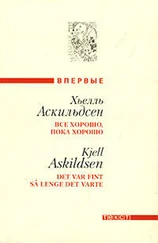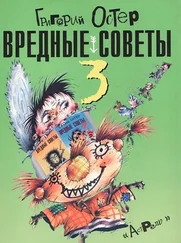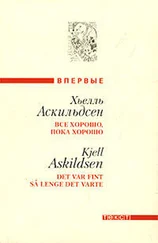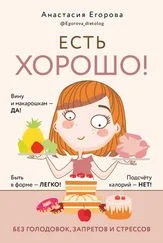Эмили Остер - Всё хорошо!
Здесь есть возможность читать онлайн «Эмили Остер - Всё хорошо!» — ознакомительный отрывок электронной книги совершенно бесплатно, а после прочтения отрывка купить полную версию. В некоторых случаях можно слушать аудио, скачать через торрент в формате fb2 и присутствует краткое содержание. Год выпуска: 2020, ISBN: 2020, Издательство: Манн, Иванов и Фербер, Жанр: sci_pedagogy, на русском языке. Описание произведения, (предисловие) а так же отзывы посетителей доступны на портале библиотеки ЛибКат.
- Название:Всё хорошо!
- Автор:
- Издательство:Манн, Иванов и Фербер
- Жанр:
- Год:2020
- ISBN:9785001690887
- Рейтинг книги:5 / 5. Голосов: 1
-
Избранное:Добавить в избранное
- Отзывы:
-
Ваша оценка:
- 100
- 1
- 2
- 3
- 4
- 5
Всё хорошо!: краткое содержание, описание и аннотация
Предлагаем к чтению аннотацию, описание, краткое содержание или предисловие (зависит от того, что написал сам автор книги «Всё хорошо!»). Если вы не нашли необходимую информацию о книге — напишите в комментариях, мы постараемся отыскать её.
Всё хорошо! — читать онлайн ознакомительный отрывок
Ниже представлен текст книги, разбитый по страницам. Система сохранения места последней прочитанной страницы, позволяет с удобством читать онлайн бесплатно книгу «Всё хорошо!», без необходимости каждый раз заново искать на чём Вы остановились. Поставьте закладку, и сможете в любой момент перейти на страницу, на которой закончили чтение.
Интервал:
Закладка:
10.Maguire-Jack K., Gromoske A. N., Berger L. M. Spanking and child development during the first 5 years of life // Child Development. 2012. № 83 (6). Р. 1960–1977.
11.Gershoff E. T., Sattler K. M. P., Ansari A. Strengthening causal estimates for links between spanking and children’s externalizing behavior problems // Psychological Science. 2018. № 29 (1). Р. 110–120.
12.Ferguson C. J. Spanking, corporal punishment and negative long-term outcomes : A meta-analytic review of longitudinal studies // Clin Psychol Rev. 2013. № 33 (1). Р. 196–208; Gershoff E. T., Grogan-Kaylor A. Spanking and child outcomes : Old controversies and new meta-analyses // Journal of Family Psychology. 2016. № 30 (4). Р. 453–469.
13.Afifi T. O., Ford D., Gershoff E. T., et al. Spanking and adult mental health impairment : The case for the designation of spanking as an adverse childhood experience // Child Abuse & Neglect. 2017. № 71. Р. 24–31.
Глава 18. Образование
1.Eliot L. What’s going on in there? How the brain and mind develop in the first five years of life. Bantam, 1999.
2.См. обзор литературы по этой теме: Price J., Kalil A. The effect of parental time investments on children’s cognitive achievement : Evidence from natural within-family variation // Child Development, forthcoming.
3.Bus A. G., Van IJzendoorn M. H., Pelligrini A. D. Joint book reading makes for success in learning to read : A meta-analysis on intergenerational transmission of literacy // Review of Educational Research. 1995. № 65 (1). Р. 1–21; Sloat E. A., Letourneau N. L., Joschko J. R., Schryer E. A., Colpitts J. E. Parent-mediated reading interventions with children up to four years old : A systematic review // Issues in Comprehensive Pediatric Nursing. 2015. № 38 (1). Р. 39–56.
4.Mendelsohn A. L., Cates C. B., Weisleder A., Johnson S. B., Seery A. M., Canfield C. F., et al. Reading aloud, play, and social-emotional development // Pediatrics. 2018. e20173393.
5.Price J., Kalil A. The effect of parental time investments on children’s cognitive achievement.
6.Hutton J. S., Horowitz-Kraus T., Mendelsohn A. L., Dewitt T., Holland S. K. Home reading environment and brain activation in preschool children listening to stories // Pediatrics. 2015. № 136 (3). Р. 466–478.
7.Whitehurst G. J., Falco F. L., Lonigan C. J., Fischel J. E., DeBaryshe B. D., Valdez-Menchaca M. C., Caulfield M. Accelerating language development through picture book reading // Developmental psychology. 1988. № 24 (4). Р. 552–559.
8.URL: http://www.intellbaby.com/teach-your-baby-to-read.
9.Neuman S. B., Kaefer T., Pinkham A., Strouse G. Can babies learn to read? A randomized trial of baby media // Journal of Educational Psychology. 2014. № 106 (3). Р. 815–830.
10.Wolf G. M. Letter-sound reading : Teaching preschool children print-to-sound processing // Early Childhood Education Journal. 2016. № 44 (1). Р. 11–19.
11.Pennington B. F., Johnson C., Welsh M. C. Unexpected reading precocity in a normal preschooler : Implications for hyperlexia // Brain and Language. 1987. № 30 (1). Р. 165–180; Fletcher-Flinn C. M., Thompson G. B. Learning to read with underdeveloped phonemic awareness but lexicalized phonological recoding : A case study of a 3-year-old // Cognition. 2000. № 74 (2). Р. 177–208.
12.Welsh M. C., Pennington B. F., Rogers S. Word recognition and comprehension skills in hyperlexic children // Brain and Language. 1987. № 32 (1). Р. 76–96.
13.Lillard A. S. Preschool children’s development in classic Montessori, supplemented Montessori, and conventional programs // Journal of School Psychology. 2012. № 50 (3). Р. 379–401; Miller L. B., Bizzell R. P. Long-term effects of four preschool programs : Sixth, seventh, and eighth grades // Child Development. 1983. № 54 (3). Р. 727–741.
14.Suggate S. P., Schaughency E. A., Reese E. Children learning to read later catch up to children reading earlier // Early Childhood Research Quarterly. 2013. № 28 (1). Р. 33–48; Elben J., Nicholson T. Does learning the alphabet in kindergarten give children a head start in the first year of school? A comparison of children’s reading progress in two first grade classes in state and Montessori schools in Switzerland // Australian Journal of Learning Difficulties. 2017. № 22 (2). Р. 95–108.
Глава 19. Внутрисемейная политика
1.Dunn J. You will hate your husband after your kid is born.
2.Шульте Б. Мне некогда! В поисках свободного времени в эпоху всеобщего цейтнота.— М. : Манн, Иванов и Фербер, 2014.
3.Rollins B., Feldman H. Marital satisfaction over the family life cycle // Journal of Marriage and Family. 1970. № 32 (1). Р. 23.
4.Lawrence E., Rothman A. D., Cobb R. J., Rothman M. T., Bradbury T. N. Marital satisfaction across the transition to parenthood // Journal of Family Psychology. 2008. № 22 (1). Р. 41–50; Twenge J. M., Campbell W. K., Foster C. A. Parenthood and marital satisfaction : A meta-analytic review // Journal of Marriage and Family. 2003. № 65. Р. 574–583.
5.Lawrence E. et al. Marital satisfaction across the transition to parenthood.
6.Archer E., Shook R. P., Thomas D. M., et al. 45-year trends in women’s use of time and household management energy expenditure // PLoS ONE. 2013. Vol. 8 (2). e56620.
7.Schneider D. Market earnings and household work : New tests of gender performance theory // Journal of Marriage and Family. 2011. № 73 (4). Р. 845–860.
8.Dribe M., Stanfors M. Does parenthood strengthen a traditional household division of labor? Evidence from Sweden // Journal of Marriage and Family. 2009. № 71. Р. 33–45.
9.Chan R. W., Brooks R. C., Raboy B., Patterson C. J. Division of labor among lesbian and heterosexual parents : Associations with children’s adjustment // J Fam Psychol. 1998. № 12 (3). Р. 402–419; Goldberg A. E., Smith J. Z., Perry-Jenkins M. The division of labor in lesbian, gay, and heterosexual new adoptive parents // Journal of Marriage and Family. 2012. № 74. Р. 812–828.
10.Wheatley D., Wu Z. Dual careers, time-use and satisfaction levels : Evidence from the British Household Panel Survey //Industrial Relations. 2014. № 45. Р. 443–464.
11.Schneidewind-Skibbe A., Hayes R. D., Koochaki P. E., Meyer J., Dennerstein L. The frequency of sexual intercourse reported by women : A review of community-based studies and factors limiting their conclusions // The Journal of Sexual Medicine. 2008. № 5 (2). Р. 301–335; McDonald E., Woolhouse H., Brown S. J. Consultation about sexual health issues in the year after childbirth : A cohort study // Birth. 2015. № 42 (4). Р. 354–361.
12.Johnson M. D., Galambos N. L., Anderson J. R. Skip the dishes? Not so fast! Sex and housework revisited // Journal of Family Psychology. 2016. № 30 (2). Р. 203–213.
13.Medina A. M., Lederhos C. L., Lillis T. A. Sleep disruption and decline in marital satisfaction across the transition to parenthood // Families, Systems and Health. 2009. № 27 (2). Р. 153–160.
14.Cordova J. V., Fleming C. J., Morrill M. I., et al. The Marriage Checkup : A randomized controlled trial of annual relationship health checkups // Journal of Consulting and Clinical Psychology. 2014. № 82 (4). Р. 592–604.
Читать дальшеИнтервал:
Закладка:
Похожие книги на «Всё хорошо!»
Представляем Вашему вниманию похожие книги на «Всё хорошо!» списком для выбора. Мы отобрали схожую по названию и смыслу литературу в надежде предоставить читателям больше вариантов отыскать новые, интересные, ещё непрочитанные произведения.
Обсуждение, отзывы о книге «Всё хорошо!» и просто собственные мнения читателей. Оставьте ваши комментарии, напишите, что Вы думаете о произведении, его смысле или главных героях. Укажите что конкретно понравилось, а что нет, и почему Вы так считаете.











